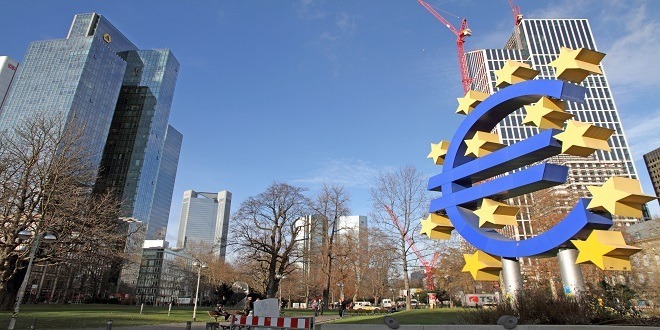A survey showed that the economic recovery in the Eurozone was faltering in September due to the decline of the service sector, which dominates the economy of the bloc, as a result of re-imposing some restrictions on activities to prevent a new spread of the Coronavirus.
Rising infection rates in the region, which a Reuters poll last month concluded as the biggest threat to recovery, would alarm policymakers who hope that the bloc’s economy is recovering after a historic contraction of 11.8% in Q2.
To support the economy, the European Central Bank intends to purchase additional 1.35 trillion euros of pandemic-related assets, and the European Union has announced a 750 billion euros recovery fund scheduled to be launched next year.
However, this did not prevent the final reading of the IHS Markit composite index of purchasing managers, which is considered a good measure of the strength of the economy, to 50.4 in September from 51.9 in August, approaching the 50 level, which separates growth from contraction.
The decline was under the influence of the services sector PMI, which accounts for nearly two-thirds of GDP, which fell to 48 from 50.5 in August, albeit better overnight than a preliminary estimate of 47.6. In Germany, today’s survey showed that the services sector did not grow in September, but the strength of the manufacturing sector helped the private sector in Europe’s largest economy remain on a path leading to a solid recovery in the Q3.
The final reading of the IHS Market Purchasing Managers’ Index in the services sector fell to 50.6 from 52.5 in the previous month.
This reading, which came higher than an initial reading of 49.1, represents an increase in the services sector index for the third month in a row from the 50 level that separates growth from contraction.
The final reading of the PMI, which covers the services and manufacturing sectors, rose to 54.7 from 54.4 the previous month. It is higher than an initial reading of 53.7.
In Britain, a large survey today showed that the country’s economy last month proved to be more robust than initially thought despite tightening public isolation measures and the suspension of temporary government subsidies for activities such as restaurants and bars.
The IHS Market/CIBS Purchasing Managers’ Index for the services sector, which does not include retail, fell to 56.1 in September from a five-year peak in August of 58.8, but the decline was below the estimate of the reading. Initial at 55.1.
The composite PMI, which includes manufacturing data released last week, fell to 56.5 from a six-year high recorded in August at 59.1, which is also lower than in an initial reading.
 Noor Trends News, Technical Analysis, Educational Tools and Recommendations
Noor Trends News, Technical Analysis, Educational Tools and Recommendations





